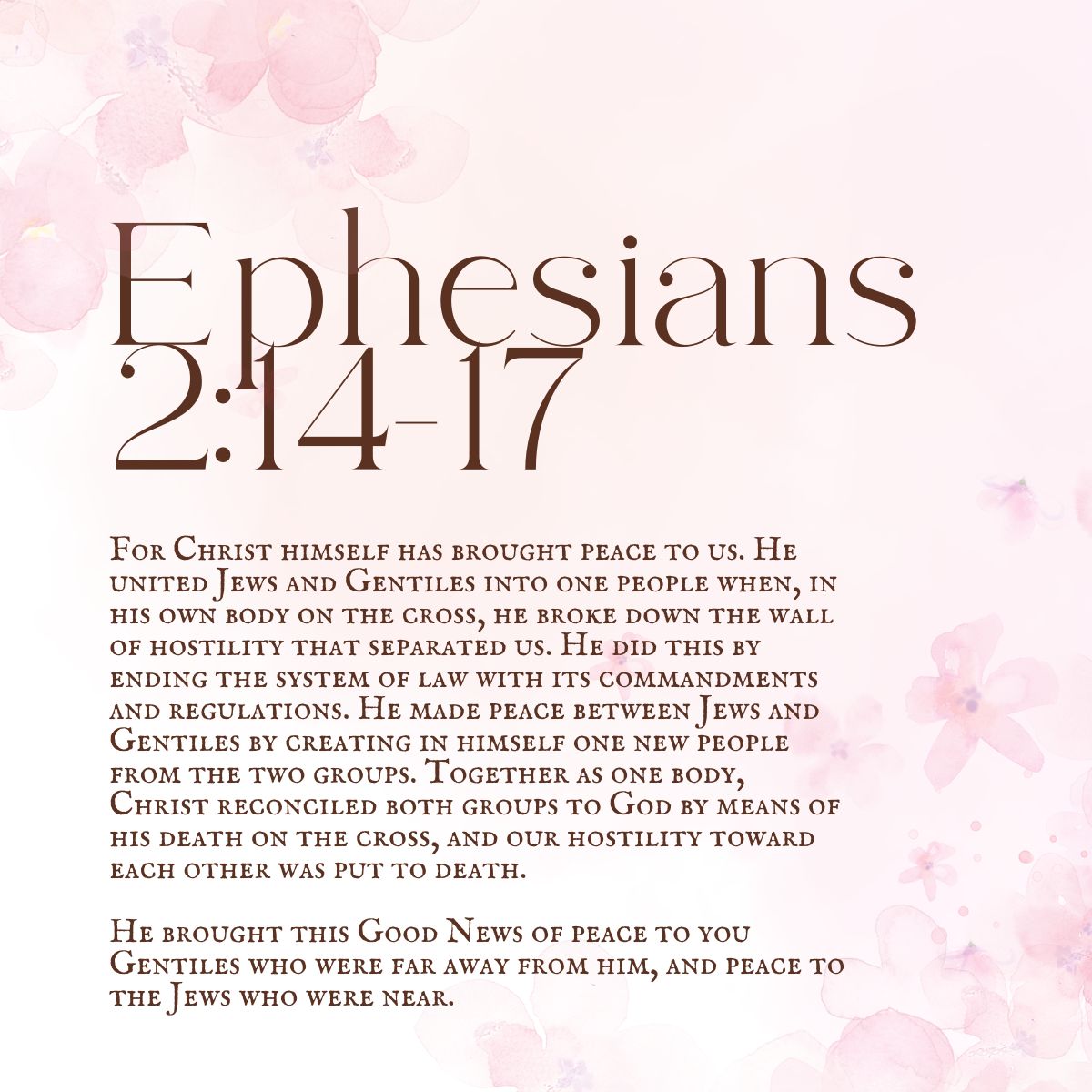
Peace. We long for it and strive for it. Looking at conflicts and violence around the world, we pray for peace.
Our desire for peace comes from God’s image within us. In our corrupt and broken world, chaos surrounds us. This contrast causes us to seek a peace that seems impossible to find. However, the Bible points us to the person of Christ. One of the Messianic names for Jesus is the Prince of Peace.
Thankfully, we can have the peace we long for through our Prince of Peace.
Photo Credit: dalle ai

1. What Is the Biblical Definition of Peace?
The Bible’s rich and multifaceted definition encompasses far more than the mere absence of conflict. In the Old Testament, the Hebrew word for peace is shalom, a comprehensive term that signifies wholeness, completeness, and well-being. It covers health, prosperity, security, and tranquility. More than a lack of war, shalom expresses the presence of positive blessings and harmonious relationships. For example, in Numbers 6:24-26, the Aaronic blessing invokes shalom:
“The Lord bless you and keep you; the Lord make His face shine on you and be gracious to you; the Lord turn His face toward you and give you peace (shalom).”
Here, shalom implies a state of being in which all aspects of life are in harmony with God’s will. In the New Testament, the Greek word for peace is eirene. Like shalom, eirene carries the connotation of wholeness and well-being. It is often used to describe the inner tranquility and harmony that come from a relationship with God through Jesus Christ. For instance, in John 14:27, Jesus tells His disciples,
“Peace I leave with you; my peace I give you. I do not give to you as the world gives. Do not let your hearts be troubled and do not be afraid.”

Christ clearly contrasts the world’s idea of peace with his own. He offers one that is different from the world’s because it’s rooted in a spiritual relationship rather than external circumstances. While the absence of conflict is a component of biblical peace, it is not the entirety. The world’s peace often proves temporary and fragile, dependent on human efforts and circumstances. In contrast, biblical peace is enduring and resilient, stemming from God himself and his eternal kingdom. The Father’s eternal peace can’t be shaken by the things of this world. According to the Bible, true peace begins with being reconciled to God through Jesus Christ. Romans 5:1 states,
“Therefore, since we have been justified through faith, we have peace with God through our Lord Jesus Christ.”
This foundational peace with God transforms an individual’s entire being, leading to inner peace and the capacity to live in harmonious relationships with others. Peace with God leads to peace within the person. Philippians 4:6-7 encourages believers,
“Do not be anxious about anything, but in every situation, by prayer and petition, with thanksgiving, present your requests to God. And the peace of God, which transcends all understanding, will guard your hearts and your minds in Christ Jesus.”
This supernatural peace guards believers’ hearts and minds even during trials and tribulations. Furthermore, biblical peace extends to relationships with others. Ephesians 2:14-17 describes how Jesus Himself is our peace, breaking down the dividing wall of hostility and creating one new humanity out of the diverse peoples. God’s peace manifests in love, forgiveness, and reconciliation among individuals and communities, reflecting heavenly kingdom values.
Photo Credit: Image created using AI technology and subsequently edited and reviewed by our editorial team.

2. What Bible Verses Address Peace?
The book of Isaiah speaks extensively about peace. In Isaiah 26:3, it is written, “You will keep in perfect peace those whose minds are steadfast because they trust in you.” Trust in God leads to a profound and perfect peace, suggesting that peace is directly related to one’s relationship with God and trust in his providence. The New Testament declares the person of Christ as peace. Ephesians 2:14 states,
“For he himself is our peace, who has made the two groups one and has destroyed the barrier, the dividing wall of hostility.”
In context, this verse speaks of the division between Jews and Gentiles. However, the passage expresses how peace is more than an idea; it is a person. Just as God is love, Jesus is peace. Peace between individuals, groups, God, and us all rests within Jesus. He reconciles people to God and each other, breaking down barriers and promoting unity and peace. Since his nature is peace, the Sermon on the Mount provides key teachings on peace. Matthew 5:9 says,
“Blessed are the peacemakers, for they will be called children of God.”
Here, Jesus emphasizes the active pursuit of peace as a virtue that aligns believers with the very nature of God. This beatitude encourages followers to be proactive in creating peace in their interactions. The apostle Paul also provides extensive guidance on peace in his letters. In Colossians 3:15, he instructs,
“Let the peace of Christ rule in your hearts, since as members of one body you were called to peace. And be thankful.”
Paul underscores that the peace of Christ should govern the hearts of believers, promoting unity within the Christian community and fostering a spirit of gratitude. Moreover, peace is also linked with the fruit of the Spirit. In Galatians 5:22-23, Paul lists the qualities produced by the Holy Spirit in the lives of believers, stating,
“But the fruit of the Spirit is love, joy, peace, forbearance, kindness, goodness, faithfulness, gentleness and self-control.”
God’s peace within us through the Holy Spirit naturally flows from us to bless others and bring peace to situations and people. The Bible calls believers to live in peace with others. Romans 12:18 advises, “If it is possible, as far as it depends on you, live at peace with everyone.” This instruction emphasizes the importance of making every effort to maintain harmonious relationships in all areas of life. Within the church community, Ephesians 4:3 urges believers to “
Make every effort to keep the unity of the Spirit through the bond of peace.”
Maintaining peace within the community of believers testifies to the transformative power of the Gospel. The Bible also links peace with justice and righteousness. Isaiah 32:17 declares,
“The fruit of that righteousness will be peace; its effect will be quietness and confidence forever.”
True peace is inseparable from justice and righteousness, reflecting God’s character and kingdom. As usual, these elements—peace, love, righteousness, justice, etc.—aren’t separate, but one within God, and all work together. Finally, the Bible promises eternal peace in God’s presence. Revelation 21:4 speaks of a future where “
He will wipe every tear from their eyes. There will be no more death or mourning or crying or pain, for the old order of things has passed away.”
This ultimate peace will be fully realized in the new heaven and new earth, where God’s perfect harmony will reign forever.
Photo Credit: ©iStock/Getty Images Plus/leolintang

3. What Does the Bible Say about Jesus Being the Prince of Peace?
The title “Prince of Peace” originates from the prophetic writings of Isaiah. Isaiah 9:6-7 proclaims,
“For to us a child is born, to us a son is given, and the government will be on his shoulders. And he will be called Wonderful Counselor, Mighty God, Everlasting Father, Prince of Peace. Of the greatness of his government and peace there will be no end. He will reign on David’s throne and over his kingdom, establishing and upholding it with justice and righteousness from that time on and forever.”
This prophecy foretells the coming of a Messiah who will establish an everlasting kingdom of peace, justice, and righteousness. During His earthly ministry, Jesus consistently embodied and taught principles of peace. His teachings emphasized love, forgiveness, and reconciliation, which were core components of his peace mission.
Jesus’s approach to peace was not merely the absence of conflict but the presence of justice and love. He often reached out to those marginalized by society, such as tax collectors, sinners, and the oppressed, offering them hope and inclusion. His interactions with people like the Samaritan woman at the well (John 4) and Zacchaeus, the tax collector (Luke 19), demonstrate his commitment to restoring broken relationships and bringing peace to troubled lives. His work of reconciliation is central to Jesus’s role as the Prince of Peace. Through His sacrificial death on the cross, Jesus reconciled humanity to God. Colossians 1:19-20 states,
“For God was pleased to have all his fullness dwell in him, and through him to reconcile to himself all things, whether things on earth or things in heaven, by making peace through his blood, shed on the cross.”
This reconciliation is the foundation of true peace, restoring the broken relationship between God and humanity. The title Prince of Peace clearly communicates a ruler and authority. Isaiah speaks of how the Messiah will govern and rule all things. Yet his government won’t be one of violent conquest but a realm of peace in relationship with the Father’s love. This is good news in a world where politicians and governments are often corrupt.
Photo Credit: Image created using DALL.E 2024 AI technology and subsequently edited and reviewed by our editorial team.

4. What Does Jesus as Prince of Peace Mean for Christians Today?
Jesus is the Prince of Peace. Yet he will not force us to take his peace. He offers it freely, but God’s kingdom doesn’t operate through force or coercion. If anyone could force us, God could do so through omnipotence, yet he chooses not to. We must recognize his rule and decide to submit. Colossians 3:15 states,
“Let the peace of Christ rule in your hearts, since as members of one body you were called to peace. And be thankful.”
In this letter, Paul communicates several important truths. First, we have been called to peace. God desires us to have this peace and leads us to it through a relationship with Himself. Second, this peace has been offered to a whole people, the Body and Bride of Christ. Entering his peace connects us with believers across time and space. Then, we must allow his peace to rule. Here, we see our need to submit our will to his. Our wills lead us to chaos. God’s will reconciles us to Himself and brings us the eternal peace we long for. Therefore, we bow to his plan and purposes. Finally, Paul instructs us to be thankful, giving gratitude for this undeserved and amazing gift of peace.
Our thankfulness flows from being reconciled with God. Through Jesus’s sacrificial death and resurrection, believers experience forgiveness of sins and a restored relationship with God. This peace with God provides a foundation for a life lived in harmony with divine purposes, free from the burden of guilt and sin. Jesus’s promise of peace includes a deep, inner tranquility. This inner peace comes from the assurance of God’s presence, guidance, and eternal promises no one can remove from us. For Christians, this means we can experience a profound sense of calm and confidence rooted in our faith even amid life's challenges and uncertainties.

Jesus, being Prince of Peace, calmed the storm, and the disciples experienced fear at how the wind and rain obeyed him (Mark 4:39-41). Once we have allowed Christ’s peace to rule in our hearts, we can also bring peace to others. Christ’s call to peacemaking involves promoting reconciliation, resolving conflicts, and building harmonious relationships. Practically, it means actively seeking to forgive others, extend grace, and work toward unity in families, communities, and churches.
Jesus’s example and rule inspire us to pursue peace through justice and advocacy. Jesus’s ministry was marked by a profound concern for the marginalized and oppressed, and his followers are called to continue this work. For modern believers, this means addressing social injustices, supporting the vulnerable, and working towards a more equitable and compassionate society. The title Prince of Peace also provides us with hope for the future. The Bible promises a time when Jesus will fully establish his kingdom, characterized by everlasting peace. This assurance of eternal peace motivates us to live faithfully and, hopefully, know that ultimate peace will be realized in God’s perfect timing.
Photo Credit: Image created using DALL.E 2024

Originally published Tuesday, 23 July 2024.
